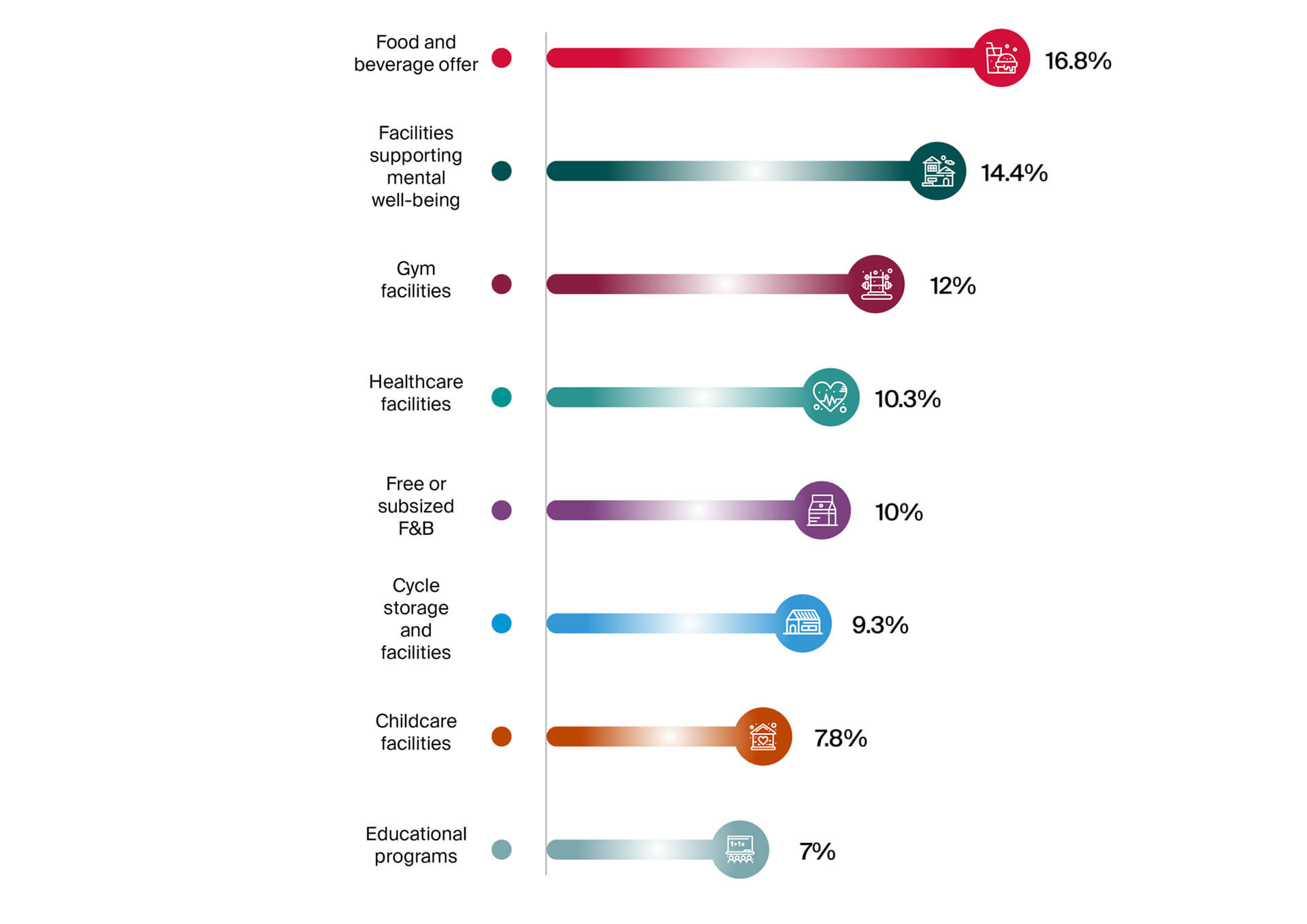In Asia Pacific, 51% of occupiers plan to enhance the quality of their office space – a significant increase from 37% two years ago.

Amenities and services companies expect employees to demand in the next
3 years globally, according to (Y)OUR SPACE 2023.
The increasingly competitive global talent landscape sees the Philippines positively distinguished by its young demographic; while the global median age is 30.3 years, the Philippines is at 24.5. With a notable concentration in and around Manila and an impressive average literacy rate of approximately 94%, the city possesses a valuable talent pool characterized by a blend of youth and skill that has made the Philippines an attractive and sought-after destination for multinational corporations. This, in turn, enhances the resilience of the Philippine office market.
However, the appeal of this workforce is accompanied by a caveat: the nature of employer-employee relationship has undergone changes. To rejuvenate the economy, the Philippine government actively championed the return of employees, particularly those in the business process outsourcing sector, to on-site work as a strategic measure to spur economic growth.
Nevertheless, employees showed significant resistance, highlighting the evolving attitudes and preferences in favor of remote work. (In a survey made by JobStreet, 28% of respondents said they prefer not to go back to the office.) This shift in perspectives comes from the lessons learned and heightened efficiency experienced during the pandemic, contributing to a discernible inclination towards remote work arrangements.
In response, office occupiers devised strategies to entice individuals back to the workplace, and this has implications with their real estate needs.
Firstly, companies are innovating their workspaces and setting standards for an optimal work environment. According to Knight Frank’s (Y)our Space 2023 survey, a 51% majority of occupiers in the Asia-Pacific region are expected to enhance the quality of space within their portfolios—a noteworthy increase from the 37% reported in the survey conducted two years prior.
Secondly, occupiers will gravitate towards premium office spaces that provide firms with a solid framework to reimagine work environments by integrating fit-out elements, technology, and amenities tailored for the future of work.
The same survey highlights occupiers prioritizing on-site food and beverage options, mental health, and fitness amenities. This survey suggests a strategic integration of fundamental employee needs, offering ample options for employees to tailor their work activities based on lifestyle preferences, encompassing recreational activities and even dietary decisions—all contributing to a more enhanced work-life balance.
As organizations strive to cultivate an efficient workplace, prioritizing employee well-being emerges as a pivotal consideration. These aspects gain significance as companies firmly adhere to an “office-first” policy. Organizations that actively listen to and promptly address the needs and concerns of their employees will be better positioned to sustain high retention rates.